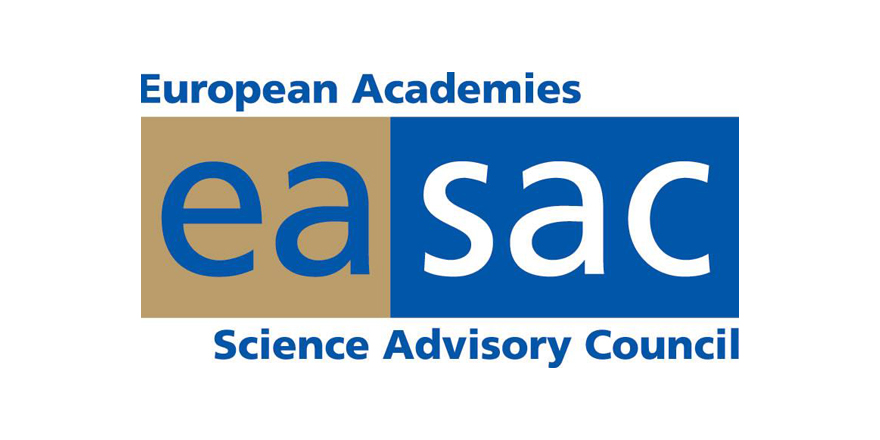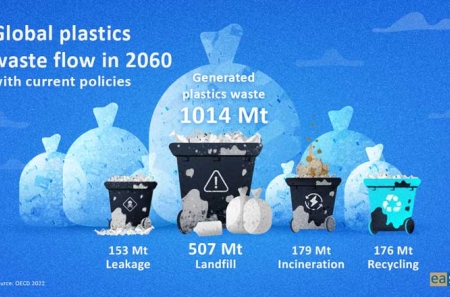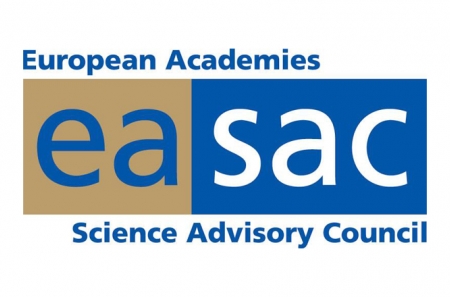
A New EASAC Commentary on Hydrogen and synthetic fuels
30 September 2020No climate benefit from hydrogen unless EU stops subsidies for fossil fuels
Hydrogen is an important alternative for sectors that are stuck in the fossil fuel economy. As national governments and European parliamentarians negotiate the EU’s hydrogen strategy, EASAC issues a new commentary.
“Hydrogen can help reduce our dependency on fossil fuels,” says William Gillett, EASAC’s Energy Programme Director. “But the climate benefits will be limited, if we use fossil fuels to produce it - even with carbon capture and storage. The EU must stop all subsidies to fossil fuels. The fast growing demand for hydrogen must be met by a massive increase of renewable electricity, together with certified imports from third countries.”
“Electricity is a great way to decarbonize our economy. But important sectors such as ships, trucks, planes and steel production cannot easily be powered by electricity. To become climate neutral, they need a fuel that can be transported like oil or gasoline, or that can convert iron ore to steel at high temperatures like coal”, explains William Gillett, EASAC’s Energy Programme Director. “The growing demand for hydrogen and synthetic fuels will require much more renewable electricity to be generated in the EU. In addition, Europe will need imports and must therefore develop partnerships with third countries to drive global trade in renewable hydrogen and in technologies to produce it.”
Carbon capture and storage does not make fossil-fuel based hydrogen climate neutral
EASAC calls on the EU to remove direct and indirect subsidies, taxes, levies and other incentives for fossil fuels. Says Gillett:
“Direct and indirect support to fossil fuels sends wrong signals. The EU should rather strengthen carbon pricing and revise the emissions trading directive to build investor confidence in future markets for renewable electricity and renewable hydrogen. Even in combination with carbon capture and storage, fossil-fuel based hydrogen still has a significant carbon footprint. To achieve carbon-neutrality, the EU should take a leadership role in global markets for renewable hydrogen and in the manufacture of low cost electrolysers to produce it.”
Avoid expensive lock-ins to infrastructures
The scientists also highlight the importance of avoiding premature and expensive lock-ins to new or renovated infrastructures that are subsequently made redundant by cheaper technologies or market developments. “In the electricity sector, distributed generation is playing an ever increasing role. Building on this experience, it makes good sense to think local for hydrogen and adopt a phased approach: initially deploying distributed electrolysers for local hydrogen production feeding into local market networks”, explains Gillett. “Also, let’s not forget that the synthetic fuels pathway is less efficient than using electricity together with a battery or using electricity directly, so hydrogen or synthetic fuels will predominantly be used only where electrification is not an option.”
About the European Academies’ Science Advisory Council (EASAC)
EASAC is formed by the national science academies of the EU Member States, Norway, Switzerland and United Kingdom, to collaborate in giving advice to European policymakers. EASAC provides a means for the collective voice of European science to be heard. Through EASAC, the academies work together to provide independent, expert, evidence-based advice about the scientific aspects of European policies to those who make or influence policy within the European institutions.
www.easac.eu
Annex: Catalogue of policy recommendations
The scientists call upon policymakers to:
- urgently increase the generation of renewable electricity, which should be used directly where possible, and is indispensable for renewable hydrogen production
- remove subsidies, taxes, levies and other incentives for fossil fuels, which continue to distort energy markets and limit the growth potential for renewable hydrogen and synthetic fuels.
- independent experts beyond the Clean Hydrogen Alliance in the work to identify and develop measures for removing market barriers.
- strengthen carbon pricing by revising the Emissions Trading Directive to stimulate markets for renewable hydrogen and hydrogen derived synthetic fuels.
- introduce new regulations (besides the Emissions Trading System) to accelerate change from fossil to renewable hydrogen in chemical and other industries including steel production.
- build investor confidence by supporting stakeholders working together in local hydrogen networks (Member States, industry, civil society, and science community).
- promote sustainable development of hydrogen markets, beginning with local or regional networks close to renewable electricity supplies, hydrogen production plants, and hydrogen consumption centres.
- establish strong links for coordination of energy governance structures between EU, national, regional and local levels.
- secure supplies of renewable hydrogen from outside the EU (in addition to EU production) by establishing international partnerships and trade cooperation with interested third countries as well as with EU neighbours.
- promote investments in renewable hydrogen and hydrogen-derived synthetic fuels with a focus on minimizing the energy invested, as well as accounting for the overall life cycle costs, per unit of GHG emission reduction.
- encourage investment in renewable hydrogen by promoting the EU taxonomy with its disclosure obligations for environmentally sustainable economic activities.
- establish standards for hydrogen production based on lifecycle GHG performance, and certification of low carbon hydrogen to use with EU taxonomy for investments.
- support the rapid development of electrolysers, prioritising those with falling costs and fast market diffusion and learning curves, to accelerate hydrogen production.
- prohibit the use of whole trees for producing renewable hydrogen by using sustainability criteria which limit carbon payback times to less than 10 years.
- support research, market studies and demand driven initiatives on hydrogen infra-structure (local, national and international) and on certification and standards.



